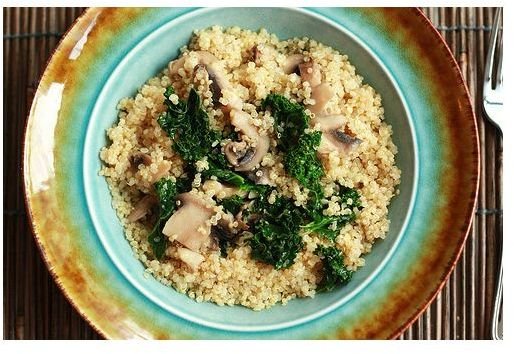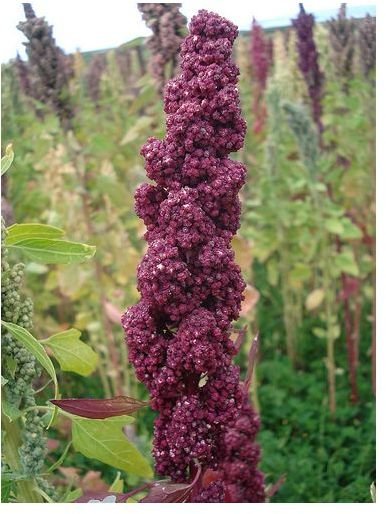Quinoa Nutrition Facts: How Healthy are Quinoa Seeds?
Ancient Grain of the Incas
Quinoa seeds have been an important food staple in South America for thousands of years. As this grain was associated with native rituals and religion, the Spanish conquistadors attempted to eliminate it when they came to the Americas. For centuries this crop was only produced in small amounts. Recently, it has been rediscovered by the rest of the world, because of the indisputable quinoa nutrition facts. Quinoa, along with amaranth seed from Central America, is one of the ancient super grains.
This grain is a small, golden seed, which can be easily cooked like rice, and integrated into any dish. It has a distinct nutty, toasty flavor that makes it excellent with vegetables and tofu. This crop is technically related to beets, swiss chard and spinach, but has a nutritional profile like a whole grain, rich in vitamins, minerals, amino acids, and essential fatty acids.
Quinoa and Protein
Most whole grains, such as brown rice and oats, are a good source of some amino acids. Quinoa seeds have all nine necessary amino acids for a complete protein. This makes quinoa an excellent source of nutrition for vegans and vegetarians, and anyone looking for non-animal sources of protein. One cup of cooked quinoa contains about eight grams of protein, which is sixteen percent of the daily recommended requirement.
Essential Fatty Acids

Not only is this grain a rich source of protein, but it also is unique in that it is an excellent source of essential fatty acids. Quinoa supplies both linoleic and oleic acids. These fats are beneficial for the brain as well as the heart. They help to lower cholesterol levels by removing plaque build-up on artery walls. One serving of quinoa supplies 1.5 grams of omega-9 fatty acids (oleic) and 2.2 grams of omega-6 fatty acids (linoleic).
Vitamins
Quinoa seeds are a good source of the B-complex vitamins, including riboflavin for energy production, thiamine for nervous system and cardiovascular well-being, and vitamin B6 for brain function. One cup of this grain cooked also supplies about one-fifth of the daily recommended amount of folate. Folate is a vital part of the diet during early pregnancy, as it supports healthy development of a fetus’ nervous system. It is also an important nutrient to regulate homocysteine levels. High levels of homocysteine are believed to contribute to heart disease.
Minerals
Perhaps the most remarkable facet of the quinoa nutrition facts is the high mineral content. One serving supplies almost half the daily requirement of manganese, which is an essential nutrient for bone health and proper metabolism. There is almost one quarter of the recommended amount of magnesium. This mineral is also necessary for bone health, as well as a healthy nervous system. Quinoa is rich in iron, for oxygen-rich blood, copper for healing and zinc for immune health.
With a balanced supply of nutrients, protein, carbohydrates and fats, quinoa seeds are worth adding to a healthy diet.
Resources
World’s Healthiest Foods <whfoods.com/genpage.php?tname=foodspice&dbid=142>.
Nutrition Data <nutritiondata.com/facts/cereal-grains-and-pasta/10352/2>.
Grain Information (AAOOB Storable Foods) <aaoobfoods.com/graininfo>.
Photo credit
photo by: Revolution Cycle (CC/flickr) <flickr.com/photos/11795120@N06/3386129652>.
photo by: Sweetonveg (CC/flickr) <flickr.com/photos/sweetonveg/4257979482>.
